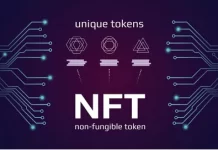Let us step back and quickly look at what we mean by words like cryptocurrency and altcoin until we take a deeper look at some other Bitcoin alternatives. Während, some cryptocurrencies with credit cards or other ventures into the real world, went, the great majority remain entirely immaterial. The “crypto” refers to complicated cryptography that enables digital currencies to be created and processed and processed through decentralized systems. A widespread commitment to decentralization is alongside the essential “crypto” aspect in those currencies; cryptocurrencies are usually designed as code in teams that build into issuance mechanisms (often, but not always, via the “mining” process) and other controls. Further, this article details the types and things to know about cryptocurrency.
Some of the cryptocurrencies that are good other than bitcoin is presented in this article. Companies and customers no longer like cash, which gives way to contactless payments such as Apple Pay. Users can pay for products in digital registries using the fast wave of a smartphone. Now there is a new payment system: Crypto-monetary. Everyone has probably heard of Bitcoin. It was the first mainstream cryptocurrency, but others have become increasingly common. More than 2,000 different cryptocurrencies are available, and more are produced daily. Research indicates that most people have learned of cryptocurrency.
Almost always, cryptocurrencies are built to be free from government influence and control, although this essential aspect of the industry is becoming increasingly common. The currencies modeled on Bitcoin collectively are called altcoins and, in some instances, “shitcoins” and have sometimes attempted to show up as updated or enhanced Bitcoin versions.
While some of these currencies might have unique features that Bitcoin doesn’t, they still have to be seen by an altcoin to a degree of security achieved by Bitcoin’s networks. Here are some of Bitcoin’s major digital currencies. First, however, a warning: such a list cannot be completely comprehensive. This was because of the existence, as of January 2021, of over 4,000 cryptocurrencies. You can get get instant access now.
Is Cryptocurrency Safe?
Usually, cryptocurrencies are generated using blockchain technology. The blockchain technology explains how “boxes” and time-stamped transactions are recorded. It’s a technical activity that’s a little complicated, but the end result is a cryptocurrency digital transaction leader that hackers have trouble exploiting. Furthermore, two-factor authentication is needed. To begin a transaction, for example, a username and password will be required. Cryptocurrencies cannot be compromised, despite the fact that shares exist. Indeed, several high-dollar hacks have high-cost cryptocurrency start-ups. Coincheck’s $534 million mark was breached, and BitGrail’s $195 million mark was breached in 2018. Many people believe that digital coins can ‘transform’ the world and that they should’switch’ to Bitcoin, the first and foremost ‘coin’ of the idea. We now think minting this new currency is… interesting.
Ethereum (ETH)
Ethereum (ETH) Ethereum aims to develop a decentralized suite of financial products which can be freely accessible to anyone, regardless of nationality, ethnicity, or belief. Ether is like an Ethereum platform traveling around and is mainly searched out by developers interested in developing and running apps within Ethereum and investors searching for other digital currencies. Ethers market cap is approximately 19 percent of Bitcoin value by January 2021.
Litecoin (LTC)
Litecoin is a global payment network focused on open source, which is not operated by any centralized agencies and which uses clerics to prove the work that can be decoded using consumer-grade CPUs. Litecoin is like Bitcoin, but its frequency is higher and provides faster confirmation of transactions. There is an increasing number of dealers accepting Litecoin other than developers. By January 2021, Litecoin was the world’s sixth-largest cryptocurrency, and it had a market cap of $ 10.1 billion and a token value of $ 153.88.00.
Chainlink
Blockchains themselves cannot bind in a responsible way to external applications. Decentralized Chainlink oracles allow clever agreements to communicate with external data to execute contracts based on data to which Ethereum itself does not bind. A variety of use cases for his framework are mentioned in Chainlink’s blog. One of the several cases explained is that water is monitored for contamination or illegal in some cities. The sensors could be developed to track the consumption of companies, water tables, and local water bodies. An oracle of Chainlink may follow up and feed this data directly into an intelligent contract. The smart contract could allow fines, the release of city flood alerts, or invoice companies with incoming data from the oracle to use too much of the city water.












